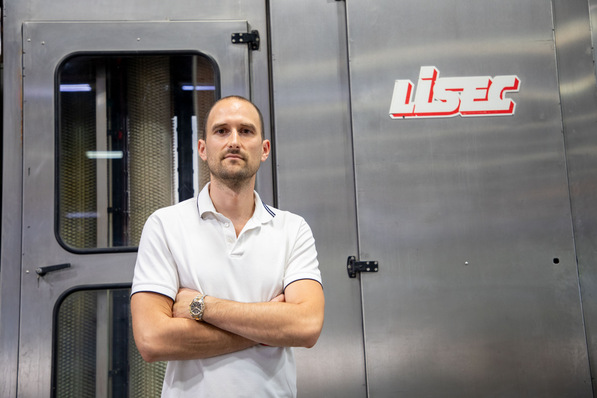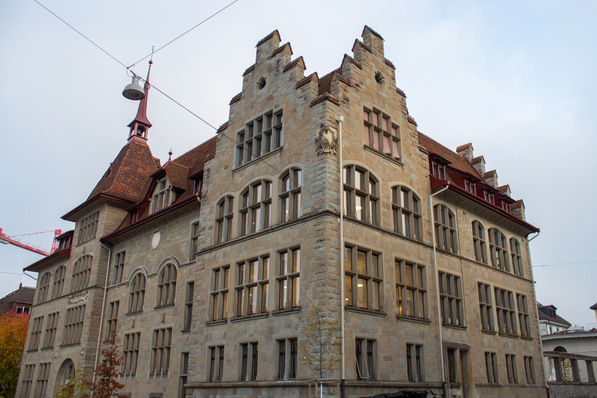GW-News: Mr Cazes, will glass manufacturers in the EU and in Germany still be able to produce glass at competitive prices in the coming year and, moreover, will the energy supply for float plants be secure?
Bertrand Cazes: When looking objectively at today’s situation, one should not under-estimate the challenges nor fall into the trap of hasty and overly gloomy predictions.
In terms of availability of gas, the mild autumn weather in Europe and high stocks should help Europe avoid shortages this winter season. It’s hard to tell what could happen in the next autumn and winters. In the coming years, the situation will also depend on whether energy savings in buildings and households are long lasting as well as on Europe’s ability to deploy new energy sources at a faster pace.
See also: Flat glass in a climate-neutral Europe in 2050
The price of energy is undoubtedly what is of greatest concern nowadays for both glass manufacturers and downstream processors and transformers. In the recent weeks, gas prices have been consistently four to five times higher than ‘normal’ times. Next to that, the price of electricity is skyrocketing, CO2 costs remain steady and production costs are generally on the rise for all players in the glass and glazing sector. We are facing inflation which is both demand-destroying and a competitiveness killer. Let’s hope this circle of inflation can be broken soon.
GW-News: On September 14, the President of the European Commission, Ursula von der Leyen, affirmed that "sectors such as the glass industry need to be supported in a targeted way" because the glass industry plays an essential role in several critical value chains. What does that mean in practice, is the EU providing support here?
The EU has put in place mechanisms for supporting the sectors suffering from the energy crisis, including the glass industry. New resources are being made available with the solidarity contribution established by the EU and the European Commission now allows Member States to grant greater financial support to companies facing difficulties due to high energy prices.
Yet, we continue challenging the Commission so that Ursula von der Leyen’s statement becomes more concrete. For the moment, support is provided when a company or site is in difficulty, but structural support and responses are yet to materialise. For example, a reform of the electricity market has been announced, but it still needs to be conceived. The glass sector also demands to be compensated for its high electricity costs induced by the EU ETS. While other industries benefit from this support, glass manufacturers so far do not. This would be a good way to target support at glass manufacturers specifically.
GW-News: And what concrete relief can be expected for companies in the glass industry value chain (that follows the float production)?
Except for ETS related matters, the EU makes little difference within a sector, therefore support mechanisms are roughly the same for flat glass manufacturers and for processors and transformers. Usually, the only difference is in the amount of maximum aid, but the details depend from one country to the other. In Germany for instance, transformers and processors can benefit from the crisis support measures in case of difficulty. The European reform of the electricity market will be particularly relevant for flat glass transformers since these processes tend to be running mostly on electricity. Glass for Europe will therefore scrutinize this closely.
GW-News: In the context of rapidly rising energy prices, there is a high risk that necessary investments by glass companies will be postponed or cancelled altogether. Do you see any opportunities for EU support here, and if so, what are they?
The European Union does provide financial support to investments in the decarbonisation of industrial processes. Faced with the energy crisis, the EU is reviewing its existing schemes and it recently unveiled a new scheme for national support.
GW-News: Do you think that the electrification of the glass industry - i.e., moving away from gas - is a possible step to make the glass industry more crisis-proof?
First, it has to be technically possible. Second, allow me to say ‘Yes and no’. Over the long-term if we witness a rapid increase in the production of decarbonized electricity, there may be less concerns over supply of electricity than there is over natural gas but that’s not the case today. Just look at France’s concerns over electricity shortages this winter. As far as costs are concerned, electricity is even more costly than gas, so electricity is not a shield against high production costs, quite the contrary in fact.
Also interesting: Sustainable production with lower CO2 emissions
Making the industry more climate- and crisis-proof will require not only electricity but the availability and affordability of many different decarbonised energy sources such as green hydrogen, biogas etc.
GW-News: Due to the high energy prices in Europe, the import volumes of glass from other countries outside the EU are likely to increase, do you see a danger here for EU (and German) glass suppliers and glass processors?
Europe is an open economy so our trading partners can export to the European Union so long as there is no price dumping or subsidy practices. Increased production costs in Europe and lower maritime transport costs worldwide create conditions for greater imports flows. We are already observing such increases for some specific product types. We must monitor this carefully because it can be very detrimental to the industry in Europe, be it for producers of glass and those of processed products.
GW-News: What action will Glass for Europe take to support our industry in 2023?
Glass for Europe will continue playing its central role of alerting EU authorities about risks and consequences of the energy crisis. This is essential to help authorities design measures that provide relief to the sector and that help it transform and adapt to new realities. With our national partners, we will support flexible and rapid implementation of financial support schemes so that aid arrives with companies before it’s too late.
In terms of advocacy, we will pursue two goals. First, to support renovation of buildings and construction: This is essential to counteract the demand-destroying effects of inflation and to maintain activity in the glazing sector. Second, to engage in the reform of the electricity market to help lower the costs for everyone in the sector.
The interview was conducted by Matthias Rehberger













